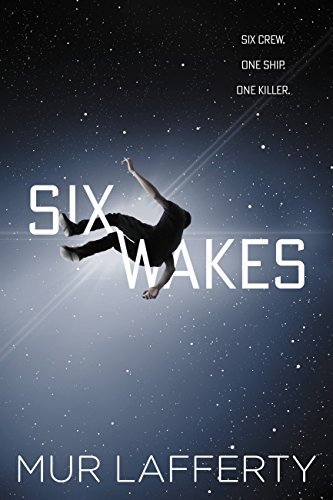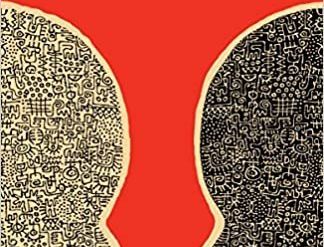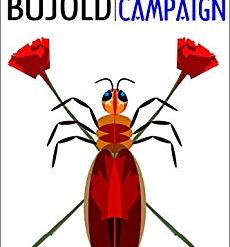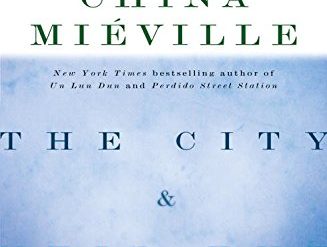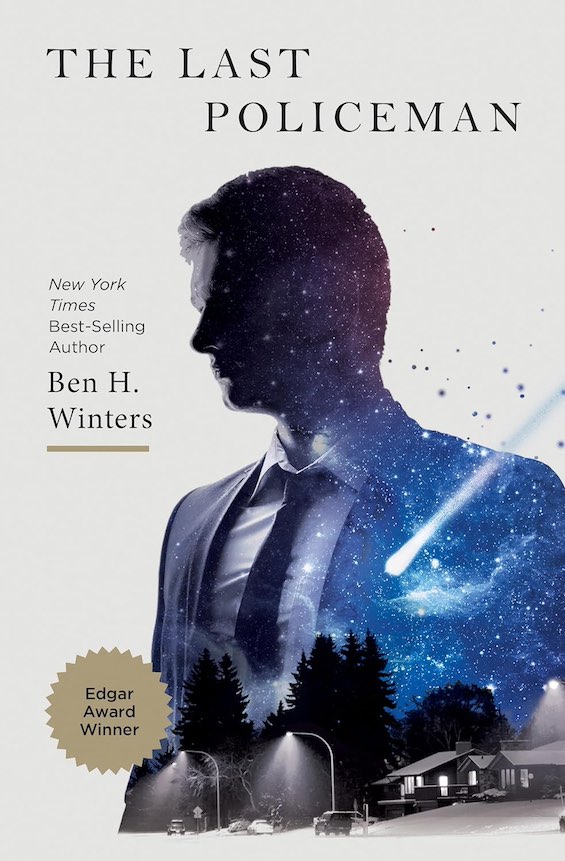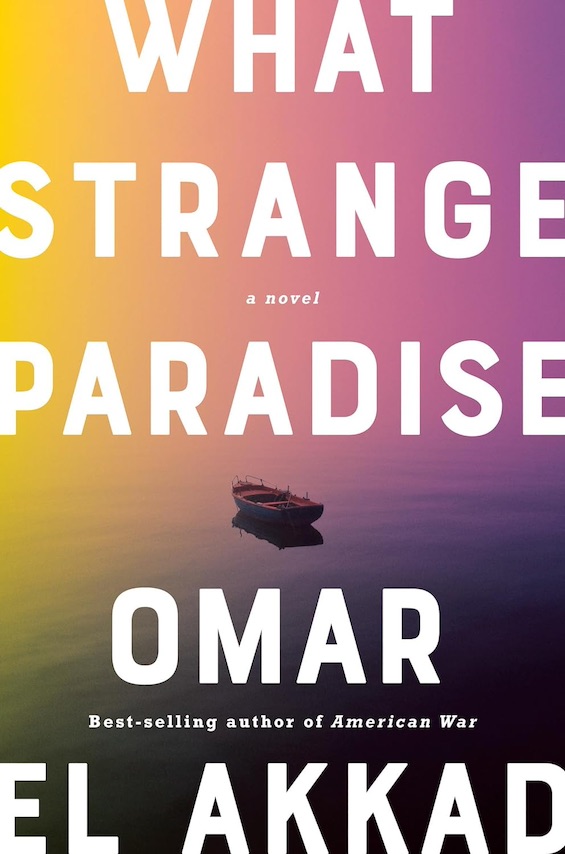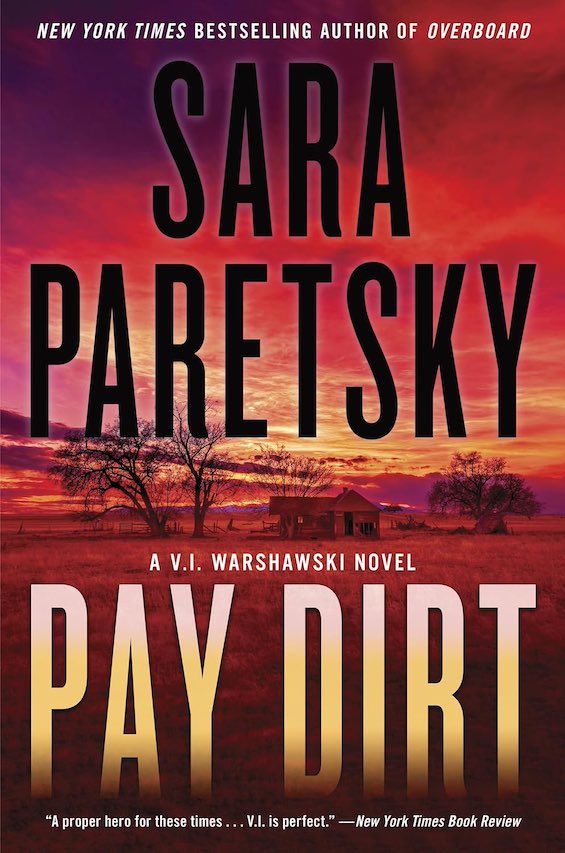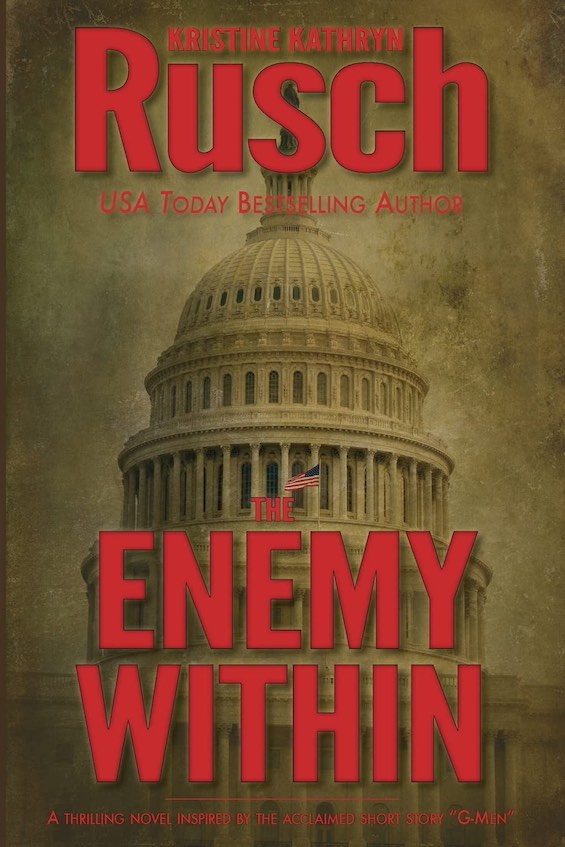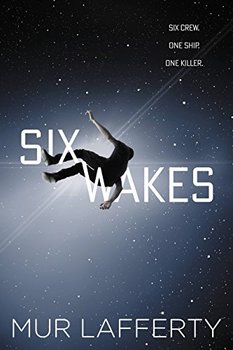
If you’re an Agatha Christie fan and can at least tolerate science fiction, you might enjoy Mur Lafferty‘s Nebula-Award nominee Six Wakes. I didn’t. This sci-fi mystery illustrates the worst of both genres.
Estimated reading time: 4 minutes
As a mystery story, Six Wakes is as contrived as the least believable of the cozy mysteries by Agatha Christie and her many imitators. The book is based on the most annoying sort of whodunit: a locked-room mystery. As science fiction, it fails to pass the smell test. There’s nothing even remotely credible about the characters or the world the book depicts. I simply couldn’t suspend disbelief. And the credibility gap grew steadily all the way to the end. A sci-fi mystery? The only mystery is why this book was a finalist for the two top awards in science fiction.
An interesting premise gone far awry in this sci-fi mystery
Lafferty would have us believe that sometime in the 23rd century, it had become possible to upload a human being’s consciousness, memory, and personality in a mindmap and insert it like software into that person’s clone. Fair enough. While that’s far-fetched given today’s science, mindmapping isn’t totally beyond the bounds of the imagination based on laboratory results in neuroscience today. And human cloning will certainly be within technical reach in the decades ahead (assuming it hasn’t already been achieved).
Unfortunately, Lafferty goes off the deep end with this premise. She imagines a virtual war between clones and humans, apparently for religious reasons. (Clones are not legally human on Earth or Luna in Six Wakes.) One corollary of the new technology is what appears to be an epidemic of assassination of clones by other clones simply because the victim’s mindmap is routinely stored offline and can easily be inserted into a new clone body.
Are you with me so far? No? Well, that bit about the war among the clones got by me, too.
Six Wakes by Mur Lafferty (2017) 400 pages ★★☆☆☆
Finalist for the 2018 Hugo and Nebula Awards for Best Novel
A cockamamie story that gets even less credible as it unfolds
Now imagine an interstellar spaceship that is three miles long and one-and-a-half miles in diameter, heading off on a 400-year journey from the Moon to an Earth-like planet called Artemis orbiting Tau Ceti, in the constellation Cetus. The Dormire is “the first human generational ship to leave Earth for better skies.” It’s the end of the 25th century, so all this is possible, presumably. The ship houses more than 2,000 humans in suspended animation, plus the mindmaps of a large number of clones.
An artificial intelligence (AI) actually runs the ship. The crew consists of six clones, all of whom are criminals, including an undetermined number of murderers; each of them has experienced multiple lives and is more than 200 years old. We’re told that these criminals have been enlisted as crew because they needn’t be paid. For them, the payoff is that their records are to be wiped clean when they arrive on Artemis.
Against this backdrop, we are plunged into a mystery at the outset. The members of the crew have all just woken up in young new bodies some 25 years after departing from the Moon. One of them had murdered all the others and then somehow died as well. To make matters worse, the AI has been disabled, and all the ship’s memory has been wiped—including the mindmaps of the six clones in the crew. In other words, they’re all going to die for real long before they reach their destination.
Have you had enough? I have. I’ve read many a sci-fi mystery that would have been far more worthy of a major award than Six Wakes.
Who is responsible for nominating this mediocre sci-fi mystery for an award?
I’m wondering what all those science fiction writers had in mind when they nominated this book for the 2018 Best Novel Award. (Yes, it’s actually the authors who choose these winners. They’re the voting members of the Science Fiction and Fantasy Writers of America, or SFFWA. Of which I must admit I’ve been a member of one sort or another for more than 40 years.) However, there is at least one genuinely outstanding novel among the six nominees. It’s Autonomous by Annalee Newitz, which I reviewed at In 2144, Arctic resorts, autonomous robots, and killer drugs.
For related reading
For more good reading, check out:
- These novels won both Hugo and Nebula Awards
- The ultimate guide to the all-time best science fiction novels
- 10 top science fiction novels
- The top 10 dystopian novels
- 10 new science fiction authors worth reading now
And you can always find my most popular reviews, and the most recent ones, on the Home Page.

